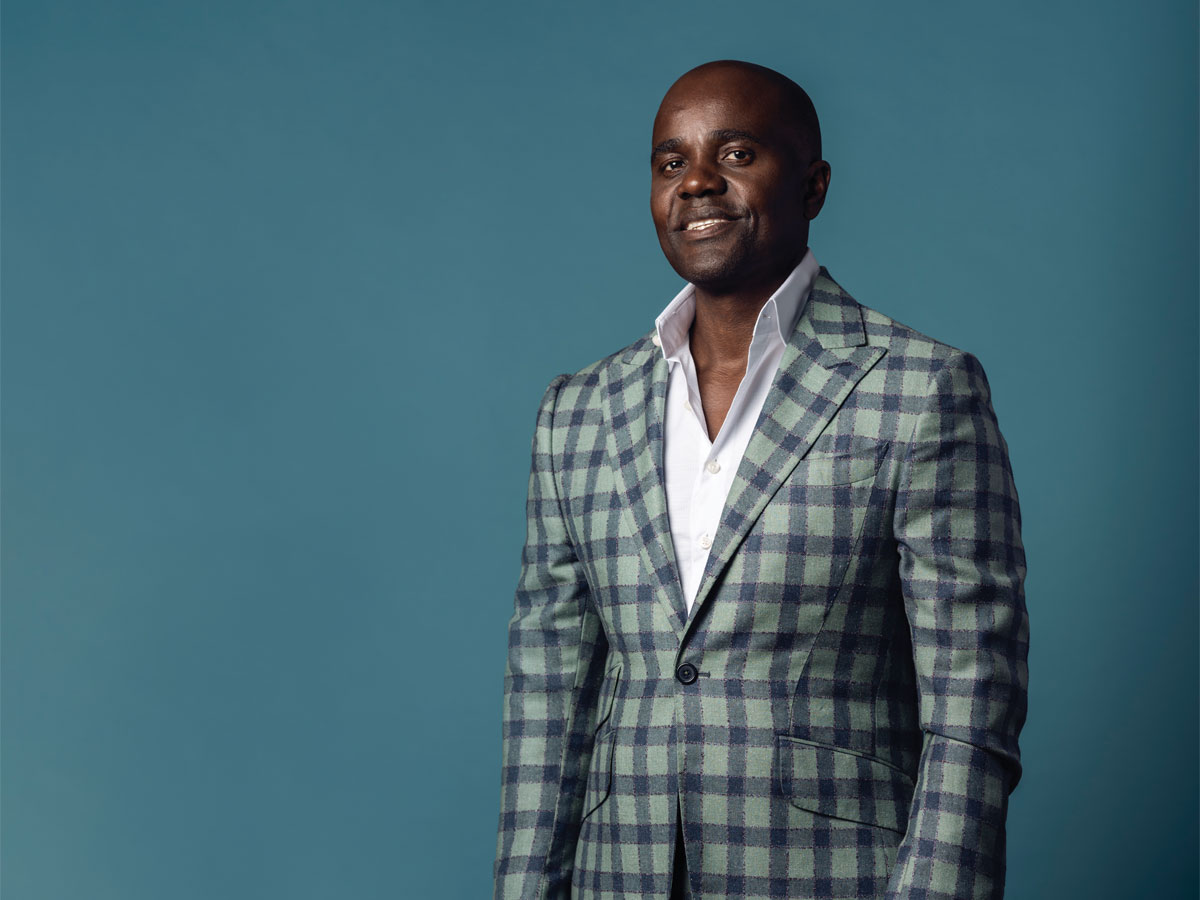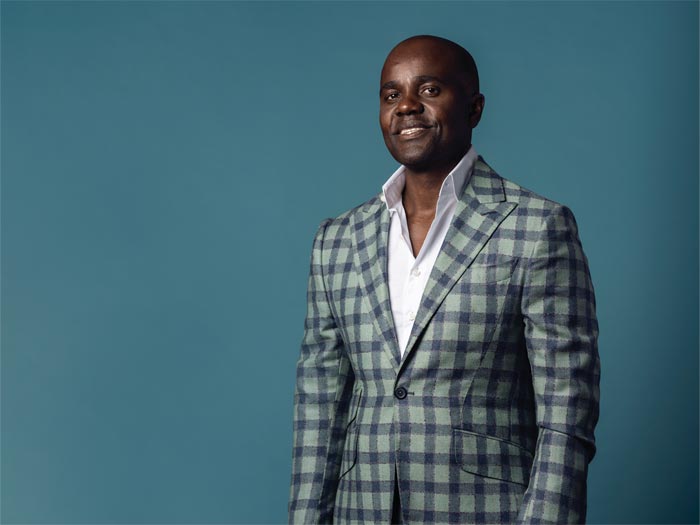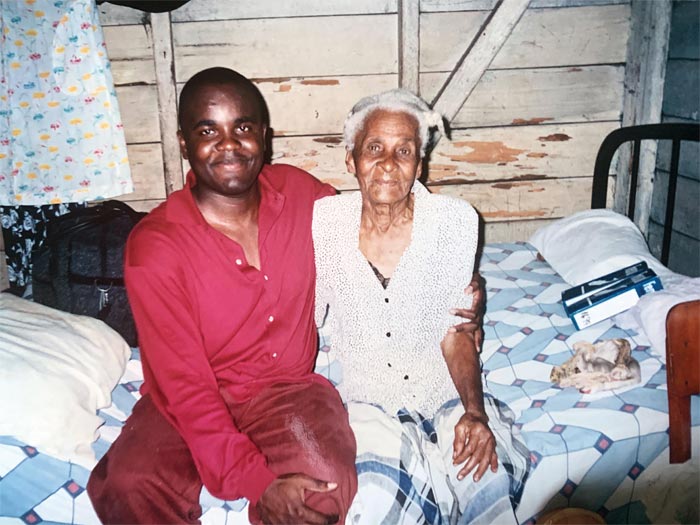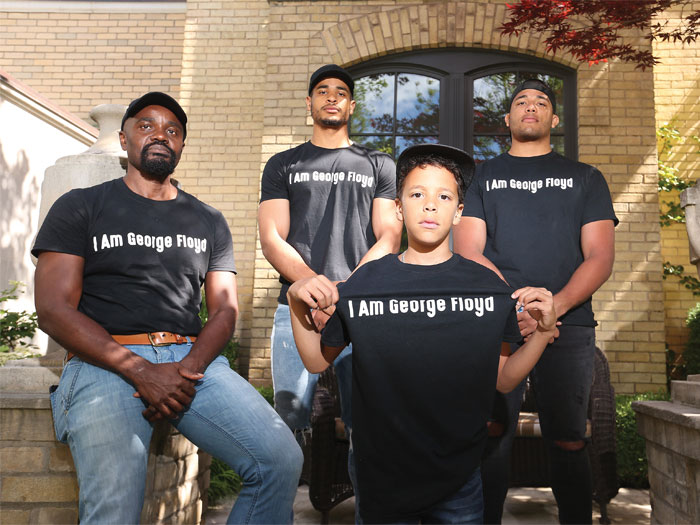
Wes Hall: ‘Racism is our pandemic’
 Wes Hall, executive chairman and founder of Kingsdale Advisors, is on a mission to get more Black executives in Canadian boardrooms (Photograph by Wade Hudson)
Wes Hall, executive chairman and founder of Kingsdale Advisors, is on a mission to get more Black executives in Canadian boardrooms (Photograph by Wade Hudson)
Over the past 30 years on Bay Street, I’ve always been the only Black person in the room. I saw my status as something special, like going somewhere where everybody’s wearing white and you’re the only person in scarlet. Where everybody’s looking at me and wondering, What’s his deal? How’d he get into this room? In the meantime, I never stayed in the corner. I always worked that room, and by the time I was finished, everybody was convinced that I belonged there.
I worked my way up from the mailroom on Bay Street, and I’ve run my own corporate consultancy, Kingsdale Advisors, since 2003. I’ve received great support and mentorship over the years, but my journey hasn’t always been easy. There were insensitive comments, microaggressions and racist jokes along the way. And then there were the times people told me what they thought of me without saying a word. I remember one day I was driving down Bay Street in my Ferrari. The top was down, Jay-Z was blasting and I was wearing my suit. And this man stopped me, handed me a card and said to call him if I ever needed a lawyer. When I flipped the card around, I saw that he was a criminal lawyer. He must have assumed I was a rapper or a drug dealer—certainly not a Bay Street executive.
I never expected my life to turn out this way. I spent much of my childhood in Golden Grove, Jamaica, in the parish of St. Thomas. It’s the most beautiful part of the country: green and lush, set against the backdrop of the ocean, totally unspoiled by pollution, industry and tourism. Nobody had television. When it was dark, we went to bed. It was like a place out of another time, another world. St. Thomas is the most impoverished part of the island, but it’s also a kind, tight-knit community. Whenever I go down there to visit, they make a point of hosting a dinner for my family and me—usually goat. Even though they could sell that goat and feed themselves for a month, they choose instead to be hospitable and generous.
My grandmother, Julia Vassel, raised me alongside a handful of siblings and cousins in a two-room shack; my mother lived in the city, and my father left Jamaica for Canada when I was a year old. I remember my grandmother as a giant. We called her Mama until the day she died: She was the only mother I knew. She always juggled several jobs at a time. One involved packaging coconuts and bananas for export. When you cut bananas off a tree, they release a sticky sap, and it would get all over her clothes. Even though we were young, she’d take a whole bunch of us to work with her and we’d help however we could, assembling the boxes they used to export the fruit or picking coconuts and piling them into the passing tractors. She took us with her everywhere.
 Hall with his grandmother, Julia Vassel, who raised him in St. Thomas, Jamaica (Photograph courtesy of Wes Hall)
Hall with his grandmother, Julia Vassel, who raised him in St. Thomas, Jamaica (Photograph courtesy of Wes Hall)
Mama planted her own fruits and vegetables—yams, bananas, potatoes, callaloo—so that she’d have something to trade and sell to buy meat. She also baked puddings and sold them in the neighbourhood so she could buy the things she didn’t have. I have this image of her coming down the street, balancing a bunch of bananas on her head. In all the years I spent with this hard-working woman, I never saw her in a dress. Just boots and pants. She taught me about hard work and not making excuses. She never asked for anything from anyone. In 2000, at age 97, she died in poverty. Her loss was devastating for me because she never had an opportunity to see what I became.
I thought I was going to live in Jamaica my whole life and hustle as a street vendor. But when I was 16, my dad sent for me to come live with him in Canada. He had moved there when he was 25 years old, leaving behind his career as a professional cricketer and a solid job at the Goodyear factory. But he always wanted to go abroad, and he gave up his whole life in Jamaica to make that happen. His girlfriend joined him; they got married and had five kids. When he sent for me to join him, I didn’t believe it was happening until I actually got off the plane in Toronto.
I arrived on a Friday in 1985 and started school the following Monday. English is my first language, but because of my thick Jamaican accent, they put me in the ESL program at school. At first, the white kids would laugh at me when I gave an answer in class. When that happened, I would ramp up my accent even more. The Black kids thought it was cool—many of them had parents from Jamaica, and they wanted to emulate me.
I figured I was going to come to Canada, get a factory job, get a mortgage for a decent house, get married, have kids and support my family in Jamaica. After high school I applied to university, but got declined funding. I moved out of my father’s house when I turned 18 and worked odd jobs that I found in the newspaper. You name it, I did it: dishwasher, office cleaner, catching chickens at Maple Leaf Farms. I worked at a restaurant in Scarborough, Ont., cleaning and washing dishes. It was the worst job ever, and I was the worst dishwasher ever. I wore boots up to my knees because the dishwater was everywhere. My dad had always told me that I had to work. And I did almost every job out there.
When I was 19, working as a security guard, a friend of mine applied for a mailroom job with a law firm. He ended up taking another job, so when the firm called him, he gave them my number. The HR manager called me, and before she was finished explaining the job, I was saying yes. She hired me over the phone.
That day, I went to a Goodwill and bought myself a suit and a tie. I wore them every day, even though my job was in the mailroom. The other guys all laughed at me: They were in jeans and T-shirts. Eventually I got promoted to a file room clerk in the lawyers’ offices, cataloguing the closing books for legal transactions. I was always impressed by the lawyers, on their big conference calls with their feet on the desk. I wanted to be one of them.
‘People have assumed that I’m a rapper or a drug dealer—certainly not a Bay Street executive’
The firm paid for employees to take courses, so I signed up for accounting and finance at Centennial College, and a law clerkship course at George Brown in the evenings. Everyone in the department knew I was ambitious and bright. I used to go up to the law clerks and ask them to give me stuff to do, but they wouldn’t give me the bigger, more sensitive tasks. One day, my manager told me I would never get promoted any further within the company. I never questioned why. But it was the best piece of advice I ever got. If she hadn’t told me that, I would have stuck around for years spinning my wheels, hoping for a chance to work on legal files.
And so I started to apply everywhere, sending out resumés to every single law firm. I eventually got a call from the HR manager at Cassels, Brock and Blackwell. They told me one of their clients, Global Television, was looking for an assistant corporate secretary: The role involved planning meetings, taking minutes and being in the boardroom with the lawyers. I’d be ensuring filings were in order, that they’d been reviewed for accuracy, that any deficiencies were fixed. I’d attend closings and review material that was going to air, making sure it wasn’t defamatory. At the end of the call, they asked if I thought I could handle all this work. I said I could learn. I never thought I’d hear from them again.
Soon after, I got a call from the office of Glenn O’Farrell, then vice-president of legal and regulatory affairs at CanWest Global, inviting me out for a drink. We met up, but not once did he ask me about my qualifications. Instead, he talked to me about my life, my ambitions, my interests. By the end of our conversation, he had offered me the job. He gave me a shot.
That’s how I made my way. I figured things out. I spent four years at CanWest Global before moving on to CIBC Mellon in 1998 as a relationship manager. I was overseeing 11 people, all of whom had been there longer than me. I was in my 20s, and my oldest direct report was in his 50s. He was my biggest challenge: He knew his work inside out, yet there he was, reporting to a guy 30 years his junior. We used to get into debates and fights. I realized I needed him as an ally, not a rival. So at client meetings, I’d let him speak up. If I got a question, I’d ask, “What do you think?” He started to feel good. Soon he started telling me I was too smart for that place. Working with him taught me how to deal with people and not let ego get in the way. I could’ve easily told him, “I’m your boss.” But I knew that I could learn from him.
My next move was toward shareholder communications at the consulting firm Georgeson Canada, where I was hired as VP of business development in 2001. In that role, I figured out that there was a huge potential in advising on proxy battles and shareholder votes. I’d go into meetings with the CEO and listen to presentations, watching how these executives dealt with shareholders. And I remember thinking, We can do so much better. At the time, we didn’t have activist investors. At Georgeson, we were hiring people to call shareholders to get their votes. I thought, What if shareholders hired me to do the opposite—to get rid of management? I saw an opportunity to make that kind of shareholder activism more professional. I suggested we transform our business. Georgeson didn’t go for it.
And so in 2003, I left Georges on to start my own firm, Kingsdale Advisors, which specializes in strategic shareholder communications. We currently employ 55 people in Toronto. Our first major deal came in 2004 and 2005 with Goldcorp in Toronto and Glamis Gold in Nevada. Goldcorp was about to close a takeover deal for the Vancouver-based Wheaton River Minerals when Glamis began a hostile bid to take over Goldcorp. Goldcorp asked Kingsdale to defend them, and we successfully got shareholders to agree to the Wheaton deal. That merger put Kingsdale on the map.
I’ve experienced my share of racism over the years: glances that spoke volumes, insidious microaggressions, undermining and antagonization. I’ve been on files where people would do something to rile me up, trying to goad me into acting “Black.” They wanted to get a rise out of me. And I’ve always kept my cool. I’ve proven them wrong by excelling beyond their wildest dreams. Once, I was involved in a big file, a major merger and acquisition deal. There were about 15 people on the phone—clients, lawyers, bankers, board members. I gave my advice on how to handle the deal, and one adviser said, right in front of everybody, “This is the dumbest advice that I’ve heard somebody give a client in 20 years of doing this work.” I knew, deep down, that he felt comfortable saying that to me because I’m Black. And if I challenged him, people could easily say, “Wes, come on, how do you know that? Maybe your advice just wasn’t any good.” In the end, the advice I’d given was bang-on. That adviser sent an email to everyone after the deal was over, apologizing to me and inviting me to lunch to make amends. That’s how I’ve won people over throughout the years—by proving myself and doing the work.
 Hall with his sons—Brentyn, Darian and Broghan—in the aftermath of George Floyd’s death (Photograph by Steve Russell/Toronto/Getty)
Hall with his sons—Brentyn, Darian and Broghan—in the aftermath of George Floyd’s death (Photograph by Steve Russell/Toronto/Getty)
When George Floyd was killed in May, something changed for me. I realized I couldn’t stay silent about racism. It became clearer than ever that it’s open season for anyone Black, no matter how much we’ve achieved. I live in a fancy house in Rosedale, one of the wealthiest neighbourhoods in Toronto, and yet every day I’m reminded of my Blackness. If I’m driving somewhere, my wife, Christine, will always ask if I have my ID on me. If I don’t, we turn around to get it. I’ve been pulled over more than a few times. It’s blatantly obvious why. One of my sons was pulled over three times in one summer. Each time he’s asked, “How can you afford this car? Whose is this?” When I’ve travelled to the U.S., I’m afraid of getting killed at one of those traffic stops. At least in Canada I know what the protocol is, and that if I don’t follow it I could end up on the concrete. When officers are walking toward my car, I make sure to have my licence and registration ready. I know the questions are coming. Many times, I’ve thought about how easily George Floyd could have been me. After he died, I knew I couldn’t go back to my swanky office and pretend that life is great for all of us.
The work I do has earned me a lot of favours among influential people in this country. And this summer, I realized that if I didn’t use those connections to make some meaningful change, it would never happen—not many Black people in this country are able to do what I’m doing today. And that’s a sad reality. There should be a hundred Wes Halls.
This past summer, I wrote an op-ed about systemic racism, and soon, I was getting calls from my neighbours and business associates asking how they could help. That’s when I came up with the idea of starting the Canadian Council of Business Leaders Against Anti-Black Systemic Racism, so we could look at the barriers Black people face in Canada.
The first thing we did is start an initiative called BlackNorth. Through this campaign, we’re trying to tell companies that if there are no Black people at the top of their organizations, they should investigate whether there’s a systemic barrier behind that. Maybe they only recruit from certain business schools and Ivy League universities where there are fewer Black people. That’s a systemic barrier. Maybe they sit on a board and only recruit former board members or former CEOs. That’s a systemic barrier. If we remove those barriers, we’re going to create opportunities for more people. I’m trying to address these gaps from the top, to get executives to recognize there’s a problem, and to commit to solutions by putting it in writing. It’s not earth-shattering stuff—all we need to do is think consciously about it.
In July, we invited CEOs to sign a pledge with specific actions and targets designed to end anti-Black systemic racism, not just at the boardroom and C-suite level, but in the student population. We’re putting targets of having a five per cent Black representation in student populations in these organizations. We held the first BlackNorth Summit virtually, and 3,000 people attended. So far, more than 350 organizations have since signed the pledge: That’s more than 30 per cent of the companies on the TSX 60, including most of the big banks.
Signing that pledge—or not signing it—sends a message. If a CEO doesn’t sign the pledge, he or she is clearly telling their Black employees that they don’t have a future in leadership there.
It’s easy for me to sit here and say anti-Black racism didn’t affect me. But I’m one of just a few Black Canadians at this level, and that’s a problem. And getting Black people in leadership is just the first step. The first Black people who enter the boardrooms and C-suites will experience a lot of pressure, and CEOs have to create mentorship and sponsorship opportunities so they can succeed. Equity is still at least a generation away: We only got our civil rights in the ’60s, and we’re still fighting for it today. It would be nice to point to a major player who hires Black people at the executive level and say, “Look at that one.” Because then other companies will follow suit.
I have five children ranging from ages 10 to 25, and I tell them they can’t take anything for granted just because their father is successful and they live in a nice neighbourhood. My daughter is in a private school, and whenever she fools around I say, “You know what? Those other kids can and will get away with it. But you can’t.” When my sons were young, they were playing basketball in the park and a neighbour called the police on them, accusing them of messing up the park and playing loud music. The police showed up, made them clean up the park and asked them to leave. Meanwhile, my daughter has been called the N-word at school, and one of my sons has come home and said, “I don’t want to be Black anymore” because somebody called him the N-word. And this is in Toronto.
The success of the BlackNorth initiative starts with acknowledging that we have a problem. The premiers of Canada had a meeting in June where they could not agree that we have systemic racism in the country. You can’t address a problem if you can’t name it and acknowledge it. Look at COVID-19: We couldn’t physically see the disease going around and infecting people, but we saw the effect it was having on people, and as a result, everyone committed to doing their part. Like the coronavirus, you can’t see anti-Black racism. But we know it’s there because Black people don’t exist in our top positions. Because Black people aren’t getting access to proper health care. Because Black people aren’t getting access to proper education. Because Black people’s businesses aren’t getting funded by institutions. This is our pandemic. So let’s acknowledge it, name it and solve it. This movement is going to happen over time. People have to see that it’s the right thing for them to do. And once they see it, they’ll do it voluntarily because it makes the right sense socially and for their business.
— As told to Pacinthe Mattar
Taking initiativeMore than 350 companies have signed on to Hall’s BlackNorth Initiative. Here are some of the things they’re promising: |
|---|
|
1) The signing companies have vowed to increase efforts to create safe spaces where employees can feel free to have difficult and uncomfortable conversations about anti-Black racism.
2) They’ve committed to offering education that addresses unconscious bias and anti-Black systemic racism, and create non-proprietary education modules available to others for free. 3) As companies develop new strategies for inclusivity, they’ll also share their best—and worst—practices to help other organizations grow and improve their policies. 4) To ensure accountability, companies will create a diversity leadership council—including Black leaders—to work with CEOs and boards and foster a network of senior executives committed to advancing Black talent. 5) Companies will recruit and promote Black talent, with the goal of creating a pipeline of employees who will eventually find their place on boards and in C-suite positions. The Initiative aims for a minimum of 3.5 per cent Black representation on Canadian boards by 2025. |
CREATE AN INCLUSIVE WORK CULTURE
Find out how Canada’s Big Four accounting firms fare on diversity and inclusion efforts. Put in the work to become a better ally and foster a more inclusive workplace. And heed this advice to make your workplace more welcoming for trans people.
A bankable pledgeDiversity and inclusion land at the top of the ledger at Canadian financial firms |
|---|
|
As the Black Lives Matter movement gains steam, the Big Five banks are among those taking action to address the representation of Black and Indigenous Canadians, as well as other people of colour, in the financial sector, particularly at the leadership level. Wes Hall’s BlackNorth Initiative pledge sought commitments from Canada’s leading financial institutions that at least 3.5 per cent of executive roles in Canada are held by Black employees by 2025, along with ensuring that a minimum of five per cent of the student workforce hails from the Black community. BMO was one of the Big Five to sign the pledge, and two others are involved at the leadership level: CIBC CEO Victor Dodig co-chairs the BlackNorth Initiative board, and Scotiabank CEO Brian Porter serves as a director. For its part, BMO has said that 40 per cent of student opportunities will go to BIPOC candidates, while RBC plans to do the same beginning in 2021. TD announced it would double its number of Black executives by 2022, and by 2025 will increase minority representation by 50 per cent among its Canadian workforce—especially Black and Indigenous employees, who will make up at least 25 per cent of its leadership team. The Big Five financial institutions combined to donate $7.7 million to charities supporting Black communities in Canada in July, and RBC pledged to lend an additional $100 million over the next five years to Black entrepreneurs. At the big four consulting firms, the Black Lives Matter movement has led to a thorough review of practices from Diversity & Inclusion departments. “We’re always looking for ways to further grow and evolve our strategies to ensure a sense of belonging among all our people,” says EY Diversity & Inclusion Leader MuriamDe Angelis, CPA. The company underwent an in-depth internal review—once an annual exercise that will now now take place on a more regular basis—that included an analysis of its D&I practices at the executive level. The results have been shared with clients and vendors, and EY is working with community organizations to further push for change. “A huge part of our strategy is using our brand and voice to help drive policy change that addresses these systemic changes that need to happen.” |